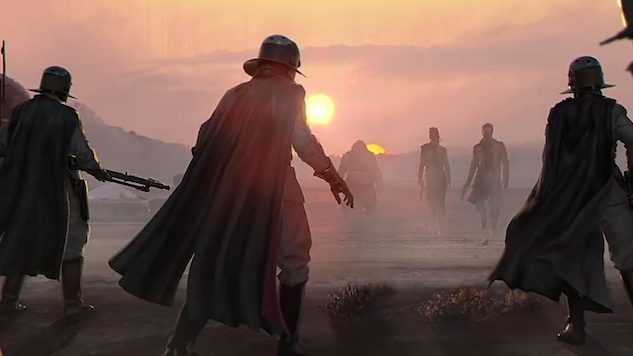Here’s What Went Wrong With Visceral’s Star Wars Game
Images via EA/YouTube
After EA suddenly announced the shuttering of Dead Space developer Visceral Games, along with their Star Wars project, the videogame community went into a frenzy trying to make sense of the situation. As the project, led by Uncharted writer and director Amy Hennig, was meant to be a linear single-player game, many saw this as the beginning of the end for large story-driven games, in lieu of Destiny-like “games as a service” experiences. But an in-depth scoop from Kotaku, featuring interviews with almost a dozen former Visceral employees, shows that many of the project’s problems came about internally.
Dead Space 3 did not perform to the expectations of EA and Visceral, and the team split into two groups, one working on the multiplayer-focused Battlefield Hardline and the other on an open-world pirate game codenamed “Jamaica.” After EA obtained the Star Wars license, and for concerns relating to the success of Assassin’s Creed IV: Black Flag, “Jamaica” was scrapped and Frankenstein-ed into a Star Wars pirate-ish game codenamed “Yuma.”
But the splitting of Visceral lowered company morale, with the team working on Hardline DLC feeling like the “B-team” compared to the Star Wars group. Hennig helped to boost the project, converting the game’s concept into a more linear Uncharted-like experience (codenamed “Ragtag”). But the work environment at Visceral was different for Hennig than at Naughty Dog, at which she would have a co-director like Bruce Straley on Uncharted projects. Hennig ended up micromanaging every aspect of the game, leading to disputes and much frustration.